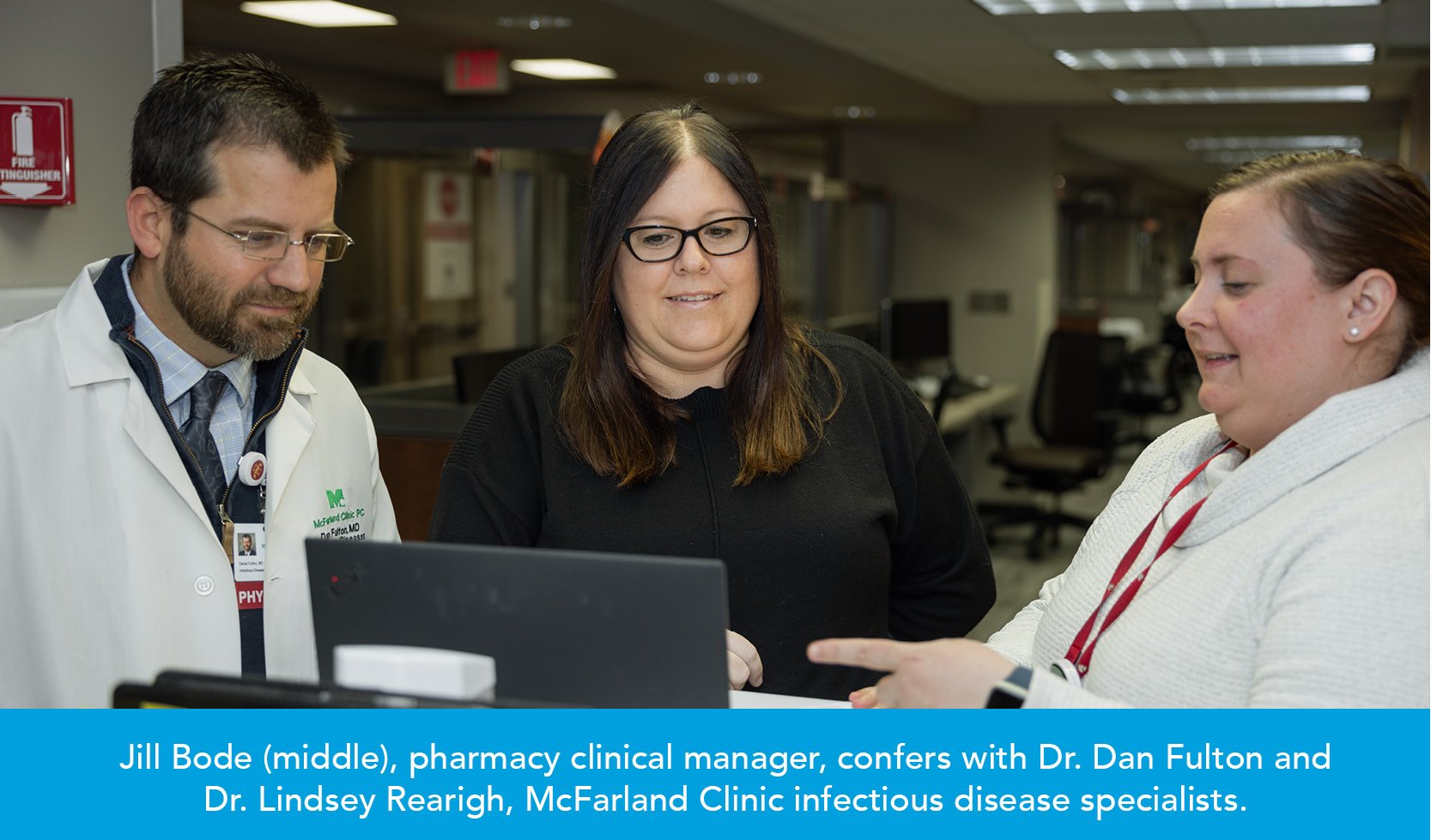Q&A: Antibiotic Stewardship
Mary Greeley Medical Center has been recognized as an Antimicrobial Stewardship Center of Excellence by the Infectious Diseases Society of America. This means we know what we’re doing when it comes to antibiotics. Here, Jill Bode, Mary Greeley pharmacy clinical manager, explains antibiotic stewardship and what it means to our patients.
 What is antibiotic stewardship and why is it important?
What is antibiotic stewardship and why is it important?
Antibiotic stewardship is the effort to measure and improve how antibiotics are prescribed by clinicians and used by patients. Improving antibiotic prescribing and use will help better treat infections and protect patients from the harms of unnecessary antibiotic use, including antibiotic resistance.
Why should patients care about it?
Thirty percent of all antibiotics prescribed in U.S. hospitals are not needed or are not optimal. Globally, at least 700,000 people die each year due to drug-resistant diseases. Inappropriate use of antibiotics could lead to common infections becoming untreatable. By the year 2050, antibiotic resistant infections could cause 10 million deaths if no action is taken.
At Mary Greeley, we focus on making sure patients get the right drug, dose, and duration. After a few days of treatment, your healthcare team might change or even stop your antibiotic once they have more information on your condition. The benefits of our antibiotic stewardship efforts include better infection cure rates and fewer treatment failures, adverse effects, and antibiotic resistance.
What should people know about antibiotics?
If a patient needs an antibiotic, the benefits outweigh the risks of side effects or antibiotic resistance. However, taking an antibiotic when it is not needed could cause harm. Common side effects of antibiotics are: nausea, diarrhea, rash, dizziness, or yeast infections. A more serious side effect known as C. diff (Clostridioides difficile), may cause diarrhea that can lead to severe colon damage and death. Some patients may also have a severe or life-threatening allergic reaction to the antibiotics.
Antibiotics do not work on infections caused by viruses like colds, flu, bronchitis, and runny noses. Any time antibiotics are used, they can cause side effects as previously described.
If you are prescribed antibiotics, take them exactly as prescribed. Talk with your doctor or pharmacist if you have any questions or if you develop side effects, especially diarrhea. In some cases, your doctor may give you a prescription for antibiotics, but tell you to wait and see if you feel better in a few days before filling it. If you feel better, you do not need to fill the antibiotic prescription.
Who is involved in our antibiotic stewardship program?
We have a diverse team of pharmacists, nurses, clinicians, and more. Our stewardship program is co-led by infectious diseases specialist Dr. Dan Fulton, McFarland Clinic, and me in the pharmacist role. Dr. Lindsey Rearigh, McFarland Clinic infectious diseases specialist, is also a top advisor to our program. Additionally, we have a core group of antibiotic stewardship trained pharmacists who review patients daily and make evidence-based recommendations to providers. Clinicians process a lot of complex information on their patients. The Antimicrobial Stewardship Team provides them with education and recommendations using the latest evidence-based prescribing practices.
Finally, why should patients care that we are an Antimicrobial Stewardship Center of Excellence?
The Infectious Diseases Society of America’s Centers of Excellent program recognizes hospitals that show excellence in antimicrobial use and preventing antimicrobial resistance. By achieving this designation we highlight that we have processes and policies in place to consistently provide high-quality stewardship principles and demonstrate a high-level commitment to antibiotic stewardship.